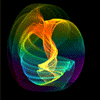Free will and the problem of consciousness - Discussion
Free will and the problem of consciousness

Jason Snyder, modified 9 Years ago at 5/7/14 8:16 PM
Created 9 Years ago at 5/7/14 8:16 PM
Free will and the problem of consciousness
Posts: 186 Join Date: 10/25/13 Recent Posts
Being relatively new to this whole thing, I have a couple beginner questions on theory.
Is recognizing "no-self" synonymous with recognizing that free will is an illusion?
Are Buddhists materialists? In particular, do they believe that subjectivity and consciousness can be completely explained in physical terms, or broken down completely to physiological sensations?
Thank you!
Is recognizing "no-self" synonymous with recognizing that free will is an illusion?
Are Buddhists materialists? In particular, do they believe that subjectivity and consciousness can be completely explained in physical terms, or broken down completely to physiological sensations?
Thank you!

Daniel M Ingram, modified 9 Years ago at 5/7/14 8:32 PM
Created 9 Years ago at 5/7/14 8:32 PM
RE: Free will and the problem of consciousness
Posts: 3268 Join Date: 4/20/09 Recent Posts
Recognizing no self is synonymous with lack of free-will, but it is not something that you change, it is something you notice.
So, sensations of intention, of "will", of effort, and the like all still arise, they are just seen clearly as they are.
People usually speculate that if they had no free-will, something bad would happen, not realizing that they never had free-will in the first place.
In terms of the ontology of materiality vs whatever, you obviously find a wide range of views among Buddhists, but the Buddha, as least as he comes to us in the Pali Canon and other texts, clearly wasn't anything like a modern materialist. You certainly don't have to come down one way or the other on the question of materialism to benefit from meditative and moral practices, which is the pragmatic key.
So, sensations of intention, of "will", of effort, and the like all still arise, they are just seen clearly as they are.
People usually speculate that if they had no free-will, something bad would happen, not realizing that they never had free-will in the first place.
In terms of the ontology of materiality vs whatever, you obviously find a wide range of views among Buddhists, but the Buddha, as least as he comes to us in the Pali Canon and other texts, clearly wasn't anything like a modern materialist. You certainly don't have to come down one way or the other on the question of materialism to benefit from meditative and moral practices, which is the pragmatic key.

Dream Walker, modified 9 Years ago at 5/8/14 1:47 AM
Created 9 Years ago at 5/8/14 1:42 AM
RE: Free will and the problem of consciousness
Posts: 1693 Join Date: 1/18/12 Recent PostsJason Snyder:
Is recognizing "no-self" synonymous with recognizing that free will is an illusion?
link to interesting fMRI experiment where the brain knows what you are going to do 6 seconds before you act ---> http://www.youtube.com/watch?v=-i3AiOS4nCE#t=268
(Edit: link to topic on awake network where I lifted the link - http://awakenetwork.org/forum/2-general-forum-topics/9544-free-will )
Good luck
~D
Chuck Kasmire, modified 9 Years ago at 5/8/14 12:42 PM
Created 9 Years ago at 5/8/14 12:38 PM
RE: Free will and the problem of consciousness
Posts: 560 Join Date: 8/22/09 Recent PostsJason Snyder:
Is recognizing "no-self" synonymous with recognizing that free will is an illusion?
What comes to be known is ‘not-self’ as opposed to ‘no-self’. No-self implies seeing some ultimate truth as to is there or is there not a self. We cannot penetrate our experience beyond basic awareness - which means that we cannot know the knower. Awareness is the end of the line as far as investigation goes.
Not-self refers to the nature of phenomena - body, thoughts, feelings and such - that as you have no real control over these things they should be treated as not-self - simply because if you do treat them as self- you will be thrown and tossed about by changing circumstances - which is collectively referred to as suffering.
Recognizing or realizing not-self unfolds over time as different ‘layers’ of identification we have with phenomena fall away or are seen through - first with the mind and later experientially at a deeper level.
Free will, destiny, and fate all require a world of things that includes an agent (you - as subject). To cut right to the chase: when identification with phenomena as constituting a self identity is completely seen through experientially then there is no longer a world of things and thus no you in it. Notice that this is saying nothing about whether there is a you or not on some ultimate level - just that in the world of forms, feelings, perceptions, thoughts, etc. - there isn’t one. And when this is truly known then changing conditions no longer have any impact on you. And from the perspective of this experience terms like free will, destiny, fate no longer have any meaning one way or the other.
Are Buddhists materialists? In particular, do they believe that subjectivity and consciousness can be completely explained in physical terms, or broken down completely to physiological sensations?
There are Buddhists of all persuasions I suppose. But Buddha’s teaching specifically focuses on what causes suffering and how one may be free from it. So belief in one theory or another doesn’t come into play really - except as yet another form of suffering.

Jake , modified 9 Years ago at 5/8/14 1:47 PM
Created 9 Years ago at 5/8/14 1:47 PM
RE: Free will and the problem of consciousness
Posts: 695 Join Date: 5/22/10 Recent Posts
The simplist thing I've found to say about this is that all phenomena influence each other in myriad, complex and non-linear ways.
Intentions are a category of phenomena that make this more or less explicit.
Free will vs. Determinism is more of an abstract debate in the Western Philosophical tradition, in some sense, in my opinion.
The experiential truth is more subtle and open ended and less absolutist. Practical experiential freedom- the capacity to effect outcomes that are desired-- is conditional and limited and situational and depends on many factors in each moment that it manifests. There is another sense of experiential freedom in which mind is not pushed or pulled by clouding factors like anger, lust and ignorance, and in my opinion this is what Budhhist teachings point towards.
The (body speach and) mind that is less pushed and pulled by these factors feels more 'free' but is no more a solid seperate continuous 'agent' than the deluded mind totally conditioned by these factors. Materialism vs. other forms of ontology are also irrelevant to the experiential process of awakening IMO as demonstrated by the many folks who are more or less awakened and express differing views on these and other topics.
Intentions are a category of phenomena that make this more or less explicit.
Free will vs. Determinism is more of an abstract debate in the Western Philosophical tradition, in some sense, in my opinion.
The experiential truth is more subtle and open ended and less absolutist. Practical experiential freedom- the capacity to effect outcomes that are desired-- is conditional and limited and situational and depends on many factors in each moment that it manifests. There is another sense of experiential freedom in which mind is not pushed or pulled by clouding factors like anger, lust and ignorance, and in my opinion this is what Budhhist teachings point towards.
The (body speach and) mind that is less pushed and pulled by these factors feels more 'free' but is no more a solid seperate continuous 'agent' than the deluded mind totally conditioned by these factors. Materialism vs. other forms of ontology are also irrelevant to the experiential process of awakening IMO as demonstrated by the many folks who are more or less awakened and express differing views on these and other topics.

Jason Snyder, modified 9 Years ago at 5/10/14 6:06 PM
Created 9 Years ago at 5/10/14 6:06 PM
RE: Free will and the problem of consciousness
Posts: 186 Join Date: 10/25/13 Recent Posts
Jason Snyder, modified 9 Years ago at 5/10/14 6:15 PM
Created 9 Years ago at 5/10/14 6:15 PM
RE: Free will and the problem of consciousness
Posts: 186 Join Date: 10/25/13 Recent Posts
Thanks to everybody for their responses, I know the questions are theoretical but it is helpful for me to understand what I am doing and why I am doing it.





